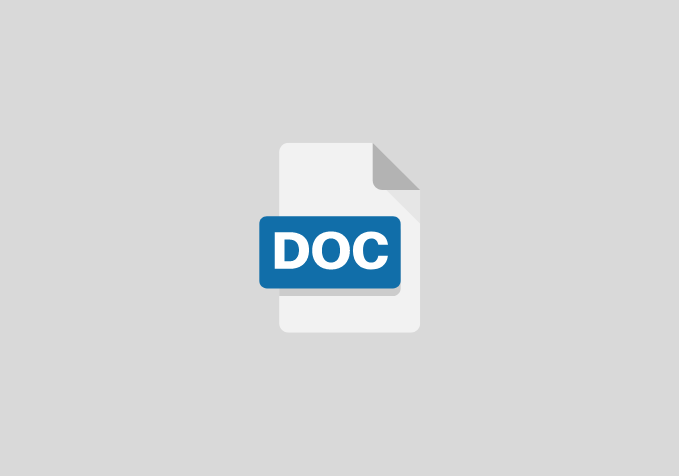A Proposal on Private Investors in the Shipping Industry in Nigeria
CHAPTER ONE
Objective of the study
The following objectives will be ascertain;
- To ascertain the effect of private investors in shipping industry in Nigeria
- To ascertain the effect of lack of transparency with private investor in shipping industry in Nigeria
- To find out the challenges faced by shipping industry that affect private investors
CHAPTER TWO
Literature review
Nigeria Maritime Industry
Nigeria, located on the coastline corridors of the Gulf of Guinea and the Bight of Benin, is blessed with a natural maritime endowment base comprising a coastline of over 850kms, an exclusive economic zone of over 200 nautical miles, a vast inland waterways resource estimated at nearly 4,000kms, capable of supporting a vibrant intra-regional trade. With Nigeria‘s total annual freight cost, estimated at between $5 billion and $6 billion annually, there is no doubt that shipping is of great importance to the Nigerian economy (NIMASA 2018). The maritime industry includes all enterprises engaged in the business of designing, constructing, manufacturing, acquiring, operating, supplying, repairing and/or maintaining vessels, or component parts thereof: of managing and/or operating shipping lines, stevedoring and customs brokerage services, shipyards, dry docks, marine railways, marine repair shops, shipping and freight forwarding services and similar enterprises. Put succinctly, the industry embraces all the maritime related business activities which take place within the country’s maritime environment. These include offshore economic activities such as fishing, salvage, towage, underwater resources and on-shore economic activities such as port activities, maritime transport (shipping), ship construction, repairs and maintenance activities.
CHAPTER THREE
Inefficient and Inadequate Port and Shipping Infrastructure
- Decaying port infrastructure is another challenge facing the maritime sector in Nigeria.
- Port infrastructure, as used in this context includes: Ports, terminals, cargo handling equipment, channels and harbours, warehouses, ports access roads, intermodal transport involving rail and roads interfacing with ships and badges, utilities, information communication technology (ICT), deep seaport and scanners.
- The current bad state of port access roads, especially to the Lagos Port Complex, Apapa and Tin Can Island Port, is rather unsettling. One question begging for answer is: Should the one mode of transport not give way to the wisdom in intermodalism (multiple modes of transportation)?
Maritime Infrastructure Deficit
Inadequate development of seaports as well as the inefficient supportive logistics infrastructure is another challenge facing the maritime industry in Nigeria. The need to increase vessel size present challenges, both for ports and shipping companies. The need to accommodate greater numbers of larger vessels does create challenges for ports where the capacity to accept such ships is conspicuously non-existent.
CHAPTER FOUR
RESEARCH DESIGN AND METHODOLOGY
The researcher used descriptive research survey design in building up this project work. The choice of this research design was considered appropriate because of its advantages of identifying attributes of a large population from a group of individuals. The design was suitable for the study as the study sought to private investors in the shipping industry in Nigeria
METHOD OF DATA ANALYSIS
The researcher will employ oral and direct interview in administering this research questions. Responses from the respondents were needed unlike questionnaires, which is less rewarding due to late receipt and loss of responses from respondents. The method of data analysis that will be used by the researcher is the simple percentage. More so, percentage and degrees of the responses will also be used in the analysis. Here, the ratio of those whose responses were not in the affirmative will be found and conclusions will be drawn there upon. Representations of the level of responses will be made in tabular form.
CHAPTER FIVE
References
- Ekpo Imoh Ekpo ‘Impact of Shipping on Nigerian Economy: Implications for Sustainable Development’ (2012) 7(2) Journal of Educational and Social Research 107 2 Maritime Executive ‘UNCTAD Reveals Shipping’s Top Five Countries’ 3Ndikom
- Obed et al ‘Critical Assessment of Maritime Industry in Nigeria: Challenges and Prospects of Policy Issues’ (2017) 20(3) African Journal of Psychological Study of Social Issues 114-128
- Nigeria’s Maritime Industry Forecast (2018) ‘Emerging Opportunities and Challenges’ Nigerian Maritime
- Administration & Safety Agency (Online) Okoroji Lazarus and Wilfred Isioma Ukpere (2011) ‘A strategic reposition of the maritime industry for economic recovery and sustainability: The Cabotage Act’ (2011) 5(14) African Journal of Business Management 5658-5663
- Sulaimon Salau, ‘Resuscitating the blue economy through PPP model’ The Guardian (9 August 2017) (Online) Thisday ‘Rescuing the Maritime Sector’ Thisdaylive (9 March 2018) (Online)
- Uzoigwe Chimezie Daniel ‘How to boost Indigenous Participation in the Nigerian Shipping Sector’ The Tony Elemelu Foundation Africapitalism Institute (2015) (Online)


